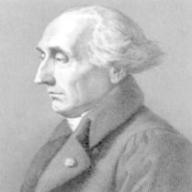點樣可以做到大公無私???
其實係依個世界有冇可能會做到????
點樣可以做到大公無私???
2007-01-19 1:19 am
回答 (5)
2007-01-19 8:39 am
✔ 最佳答案
Hello :(You can find my answer in your question « 人究竟係唔係天生自私?? »)
These are not absolut 大公無私 in this world, somebody can 大公無私 (with condition) 5 mins before then 自私自利 5 mins later :
大公無私 ~ 表面上的道德行為***都是出於利己的目的而做出的,其中最重要的兩個原因是個人名譽和法律規範。出於個人名譽的道德行為其目的隱含著滿足自己的意欲,希望自己獲得他人的敬意從而產生心理上的滿足。而迫於法律規範的道德行為則是為了規避法律懲罰,免於自己受到損失而做出的。
***道德行為 / 大公無私
Exe : Two people want to work in your company. You are manager of human ressources, and your company need only one person. One is the daughter of your sister in law… what is your choice ? ….. ~ In the same condition, if another one is the girlfriend of your boss girlfriend… what do you do now ? :-p
有人錢要做到大公無私唔難~ I dont think so… Do Lee kai sing will replace his son/ president for his company if somebody work hard, has exceptionnal result ?
~ 其實係依個世界有冇可能會做到?
CAN BE !! a condition that we haven’t 損失 important 利益 or we still stand in our superior position after 大公無私 action .
Exe : Lee Kai Sing give ten beggers each one 5hk$ . very just for each one ;-)
~ 同情 ~ 叔本華認為真正的道德是非常稀有的,真正道德的人也是萬中無一,他說我們會對那些道德行為產生敬意正說明了那些道德行為與眾不同,是不可思議的。他引用盧梭的話說,人們不會對比自己幸福的人產生同感,而只會對比我們不幸的人感同身受。即我們的直接同感只局限於對他人的痛苦,而不是安逸。因此,同情實質上是對他人痛苦的感同身受,也就是將他人與自己視為一體。從同情出發,直到高尚無私***,慷慨大量,一切對於美德的讚美辭彙都出於此而沒有其它。
***高尚無私 =大公無私
http://hk.knowledge.yahoo.com/question/?qid=7007011703331
http://zh.wikipedia.org/w/index.php?title=%E5%8F%94%E6%9C%AC%E8%8F%AF&variant=zh-tw
2007-01-21 6:19 am
大公無私,緊係做得到啦,如果無咗大公無私咁就大件事啦。
例如,個世界有個叫法庭、高等法院、終審法院,呢啲咪係大公無私囉,段估啲法官都唔會公報自仇呱。
自己想大公無私亦得架喎,無論做咩嘢都好,只要自己係對事而唔係對人,針對件事嘅性質要求,去作公平嘅判斷,咁樣做咪大公無私囉。
但係呢個世界啲人,都會啲[賴貓][偷雞]嘅人喎,個啲人係會幫返自己友架喎,不過佢地遲早到會比人地發覺到嘅,佢地啲賴皮嘢,到時唔係大公無私啦,係做咗犯眾曾,仲唔成日比人督背脊就怪囉.....
2007-01-20 23:13:02 補充:
補充多少,如果係有矩條而無嚴格執行,而又無條款嘅公正人監察,咁樣只係靠舉報啲人去做大公無私,咁樣如果又無咩人肯去舉報,你估吓大公無私會變成點樣吖?
例如,個世界有個叫法庭、高等法院、終審法院,呢啲咪係大公無私囉,段估啲法官都唔會公報自仇呱。
自己想大公無私亦得架喎,無論做咩嘢都好,只要自己係對事而唔係對人,針對件事嘅性質要求,去作公平嘅判斷,咁樣做咪大公無私囉。
但係呢個世界啲人,都會啲[賴貓][偷雞]嘅人喎,個啲人係會幫返自己友架喎,不過佢地遲早到會比人地發覺到嘅,佢地啲賴皮嘢,到時唔係大公無私啦,係做咗犯眾曾,仲唔成日比人督背脊就怪囉.....
2007-01-20 23:13:02 補充:
補充多少,如果係有矩條而無嚴格執行,而又無條款嘅公正人監察,咁樣只係靠舉報啲人去做大公無私,咁樣如果又無咩人肯去舉報,你估吓大公無私會變成點樣吖?
參考: my self
2007-01-20 3:51 am
大公無私=不影響任何眾生;
能最低限度做到’損人利己’已經是人可以接受的’大公無私’了。
能最低限度做到’損人利己’已經是人可以接受的’大公無私’了。
2007-01-19 8:02 am
人就是人!不是神!永無大公無私程度,只能把不公平的地方減輕。主觀和角度是也!
2007-01-19 1:26 am
全部人做到係冇可能嫁啦~
但~至於點做到大公無私~
我可以答你~要靠自己~
有人錢要做到大公無私唔難~
但窮人要做到大公無私就確實幾難~
但~至於點做到大公無私~
我可以答你~要靠自己~
有人錢要做到大公無私唔難~
但窮人要做到大公無私就確實幾難~
參考: 不就是我嗎?
收錄日期: 2021-04-23 13:00:26
原文連結 [永久失效]:
https://hk.answers.yahoo.com/question/index?qid=20070118000051KK02524




